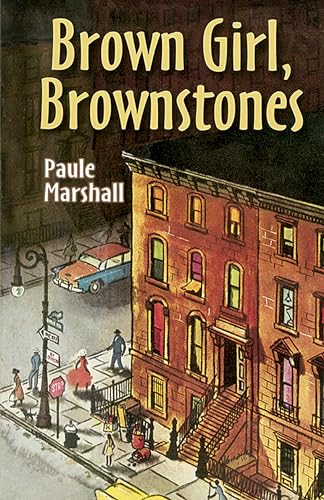
 The first words of Harry Crews’ first book, The Gospel Singer, are:
The first words of Harry Crews’ first book, The Gospel Singer, are:
Enigma, Georgia was a dead end. The courthouse had been built square in the middle of highway 229 where it stopped abruptly on the edge of Big Harrikan Swamp like a cut ribbon.
This is geography as metaphysics, and I can never read about the Big Harrikan Swamp without thinking of it. William Gay’s horrifying Twilight followed Crews into the literary Harrikan. Now Crews, who died on March 28 at age 76, has followed Gay all too closely into that bigger, scarier Harrikan that eats us all.
Before that was Barry Hannah, and before that Larry Brown. It’s hard not to notice the way the obituaries make all of these writers sound the same, when they don’t in their own prose. An excessive journalistic focus on their hard-scrabble lives creates the illusion of a school: the rough-and-tumble “Southern Writers.” It’s true enough that the manners described by Hannah, Brown, Gay, and Crews were those of the mid-to-late twentieth century South. However, the mystery each grasps at in his own way extends beyond any real-life coordinates. In Crews’ case, when we look past the haggard face and the thrilling biography full of fights and fornication, we find a fictional world closer to the Eastern Europe of Kafka and Hrabal than to today’s good ole boy.
I first heard about Crews when I was trying to write a novel about people I’d known when I was living in South Carolina with a stripper several years my senior. I was embarrassed of my novel and of South Carolina. I’d tried my hardest to get the hell out of there — to become unSouthern. But as any Southerner who is a writer and an exile knows, it only really gets in your blood once you’re gone. I wasn’t trying to convince myself I didn’t hate it, like Quentin Compson; I was trying to convince myself I did. A friend, seeing my struggle, suggested I try Harry Crews.
 I picked up A Feast of Snakes and was astounded by how radically unSouthern its South was. The book had all the tropes of a “Southern Novel,” sure — alliterative names, bootleg whiskey, dog-fights — but it pushed them so far as to blow them to kingdom come. Which was what I’d been waiting for. I’d read a ton of Faulkner and all of Flannery O’Connor, but, with apologies to Faulkner, the past is, after a certain point, past. (Today, it’s hard to believe that when O’Connor went to the Iowa Writers’ Workshop, nobody could understand what she was saying. Southern kids text “OMG” like everyone else.) Crews’ book had come out the year I was born, and yet, as I read it at the turn of the millennium, I saw an old coot way out-doing what I thought was new; this wasn’t past at all. Joe Lon, Berenice, and all the snake freaks, dog-fighters, and castrated cops pushed the real South I knew into an ecstatic, rhapsodic space. It was right next door and out of this world.
I picked up A Feast of Snakes and was astounded by how radically unSouthern its South was. The book had all the tropes of a “Southern Novel,” sure — alliterative names, bootleg whiskey, dog-fights — but it pushed them so far as to blow them to kingdom come. Which was what I’d been waiting for. I’d read a ton of Faulkner and all of Flannery O’Connor, but, with apologies to Faulkner, the past is, after a certain point, past. (Today, it’s hard to believe that when O’Connor went to the Iowa Writers’ Workshop, nobody could understand what she was saying. Southern kids text “OMG” like everyone else.) Crews’ book had come out the year I was born, and yet, as I read it at the turn of the millennium, I saw an old coot way out-doing what I thought was new; this wasn’t past at all. Joe Lon, Berenice, and all the snake freaks, dog-fighters, and castrated cops pushed the real South I knew into an ecstatic, rhapsodic space. It was right next door and out of this world.
In a lot of ways, Crews’ irreverence toward regional tradition is to be expected. With World War I, generation displaced region as the primary literary category, Malcolm Cowley once argued. This seems pretty sound today. We don’t really talk about “Midwestern literature” post-Sherwood Anderson (or maybe Saul Bellow). “New England literature” sends us all the way back to Emerson and Thoreau. Yet you still hear “Southern Literature” all the time. It resounds like the drone-string of a banjo every time one of these old white rebel novelists dies.
 There is still plenty of debate about the implications of the term. Marc Smirnoff, editor of the Oxford American, recently wrote a controversial essay attacking an upstart, upscale rival, Garden and Gun, for “white washing” the South. I like Garden and Gun, but I loved Smirnoff’s attack — except that much of his criticism applies equally well to his own pages. Why does the Oxford American have to be a magazine of “good Southern Writing?” It might not fetishize the South in precisely the same way as Garden and Gun (or Southern Living, to which Smirnoff compares G&G), but it still fetishizes it. There are amazing writers in the South — Suzanne Hudson is the best, in my opinion; seriously check out In A Temple of Trees — but they aren’t good because they’re Southern. So maybe the most fitting tribute we could pay to Harry Crews’ achievement is to bury the term “Southern Literature” alongside him.
There is still plenty of debate about the implications of the term. Marc Smirnoff, editor of the Oxford American, recently wrote a controversial essay attacking an upstart, upscale rival, Garden and Gun, for “white washing” the South. I like Garden and Gun, but I loved Smirnoff’s attack — except that much of his criticism applies equally well to his own pages. Why does the Oxford American have to be a magazine of “good Southern Writing?” It might not fetishize the South in precisely the same way as Garden and Gun (or Southern Living, to which Smirnoff compares G&G), but it still fetishizes it. There are amazing writers in the South — Suzanne Hudson is the best, in my opinion; seriously check out In A Temple of Trees — but they aren’t good because they’re Southern. So maybe the most fitting tribute we could pay to Harry Crews’ achievement is to bury the term “Southern Literature” alongside him.
But we need Southern Lit, you might say. The South is different — they’re crazy down there — and we require a certain quota of drunk, hard-living scribblers in order to understand them. I’d reply that that’s precisely the reason Southern Literature should be kicked to death like the dog, Tuffy, in Feast of Snakes — with a vicious brutal love. Because it is not the job of Harry Crews to school you on the quaint anthropology of a foreign region or to make you feel better about living there. It is his job to take you to a different Georgia, Enigma and Mystic, a Georgia of the mind. Crews is not a romantic writer, but his works are now being romanticized — and civilized. The Southern Lit industry tells us what to expect when we read these dead gritty Southern white dudes. But the only way to do justice to the sledgehammer prose of Crews — to allow it to do its work — is to kill off the genre, sacrificing the adjective “Southern” for the sake of what really matters here, which is Literature.








